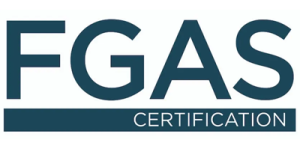Air compressors are critical to many industries. They can be found powering pneumatic tools and machinery or as an integral part of industrial processes. But, although they have made themselves indispensable, air compressors can be expensive. Perhaps surprisingly, the energy consumption costs of an air compressor usually far outweigh the costs of the equipment itself over its lifespan..
VSD air compressors address this, providing an efficient and adaptable way to supply compressed air that avoids waste. They reduce both the cost of your compressed air system and benefit the environment by minimising wasted energy through improved efficiency.
Table of Contents
What are fixed-speed air compressors?
A fixed-speed air compressor has two settings: on and off. As it powers all components, the device operates at full capacity when turned on, even if most of the capacity is unused.
While some compressed air users require a constant stable pressure, many will have needs that fluctuate. This might be at regular intervals, for example, as products move through processes or with shift changes or even at ad hoc intervals as different equipment adds to the demand.
As the name suggests, VSD technology addresses this by working at variable speeds. They only provide the compressed air you ask for – no more, no less.
You might have a process with a constant demand for compressed air, like powering production lines for example. Extra air might be necessary at some points, such as blowing the line clear after a process, while staff may use pneumatic tools at other points. While a fixed-speed compressor would need to operate at full speed, a VSD compressor can automatically adjust to meet the unpredictable combinations of demand.
What are the benefits of VSD Air Compressors?
VSD are energy-efficient
The most significant difference is the energy efficiency of a variable-speed drive. Due to traditional air compressors constantly running at full speed, they can waste a lot of energy producing unneeded compressed air. Typically, a variable-speed drive will result in energy savings between 35% and 50%.
VSD compressors are better for the environment
By reducing energy use, you reduce the carbon emissions associated with your processes. However, the environmental benefits go further because you will also reduce your consumables, such as filters, which may contain oil and particulates that make them hazardous waste.
VSD compressors perform better
By responding to demand, VSD compressors maintain consistent system pressure. This reduces the risk of pressure drops and minimises leaks.
VSD compressors give your compressed air system a longer life
Although compressed air systems are robust, they experience wear and tear like any mechanical system. A VSD compressor, by offering more consistent pressure and soft starts, reduces the mechanical stress throughout the system. Stress on the system is reduced and the consequent maintenance needs for everything connected to your systems.
VSD compressors save you money
VSD air compressors tend to cost more than fixed-speed compressors to buy. However, their running cost savings quickly offset that difference, sometimes by as much as 50% of the lifetime cost. The most significant savings come from lower energy costs. Still, VSD compressors reduce other overheads like repair and maintenance and can also help maximise productivity because of their consistent pressure.

How do VSD air compressors work?
Three key components operate together to make a VSD compressor work: the inverter, the controller, and the motor.
The inverter takes the electrical supply and converts it to a variable frequency. Allowing precise control of the motor rather than a simple on-or-off power flow.
The controller, as its name suggests, controls the process. It uses sensors within the system to measure pressure and responds immediately to adjust the motor speed.
The motor drives the compressor. Designed to work proportionately to the power supplied by the controller and inverter, it responds to changes in demand. They are frequently linked to rotary screw compressors since they have a close relationship between motor speed and compressed air volume.
When is a VSD air compressor the best choice?
For all their benefits, VSD compressors are not always the right choice. Users with little fluctuation in demand are best suited to a fixed-speed compressor. VSD compressors are not designed prolonged maximum speed operation, as they are designed for infrequent drops in demand. However, in situations with fluctuating demand, such as changes resulting from shift patterns or changes in production rates, for example, they are ideal.
They are also increasingly popular with businesses looking to reduce their energy use. Whether this is to help reduce operational costs or to meet environmental goals, a VSD compressor can make a dramatic difference.
How to choose the right VSD compressor
The chief benefits of a VSD air compressor can also make it challenging when selecting the right one: you must understand your air demand profile. VSD compressors are not designed to run at full power for extended periods, so understanding your operational demands is essential. This might mean considering not just your daily operations but also how they might change seasonally and even your longer-term plans that may affect the VSD compressor you need.
Booking a professional air audit from J LL Leach is a good first step. These take place over a period of time, usually a week, and capture data from every part of your system. That data can help you determine your compressed air demand and identify the VSD air compressor that is exactly right for your needs. J Ll Leach can audit your system, providing you with all the information you need to make an informed decision on the installation of new equipment.
Do you need a VSD compressor?
It is difficult to fault VSD air compressors. From reducing your costs, helping the environment, and being kinder to your compressed air system, you might wonder why anyone would choose anything else.
There are situations where a fixed-speed compressor is the best option for you. However, if you have a variable demand for compressed air, a VSD air compressor will be better for your system and will save you money.
We are always happy to help you meet your compressed air needs. If you are thinking about your options, want to know more about VSD air compressors, or are ready to get your first VSD air compressor, just get in touch.












